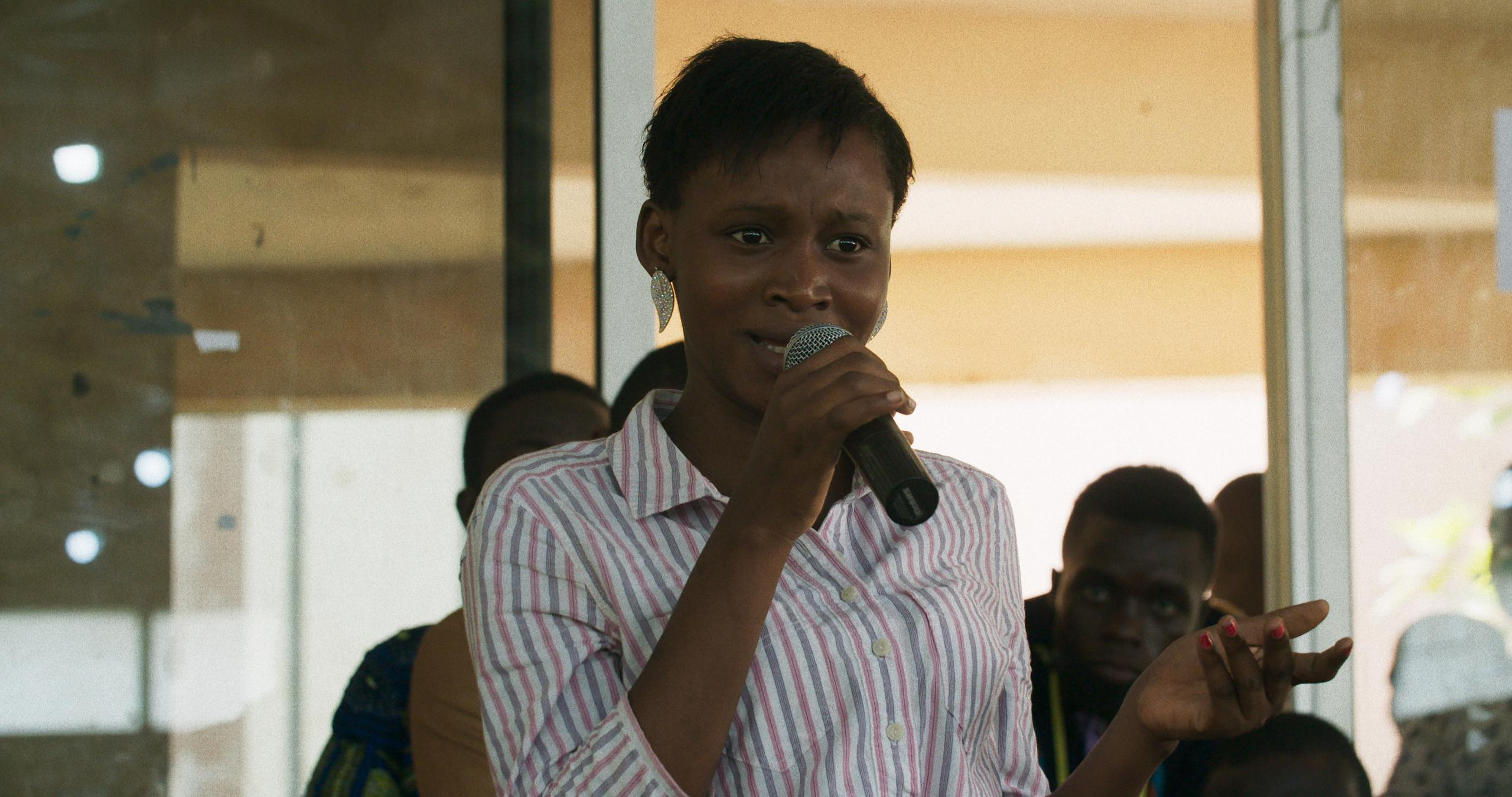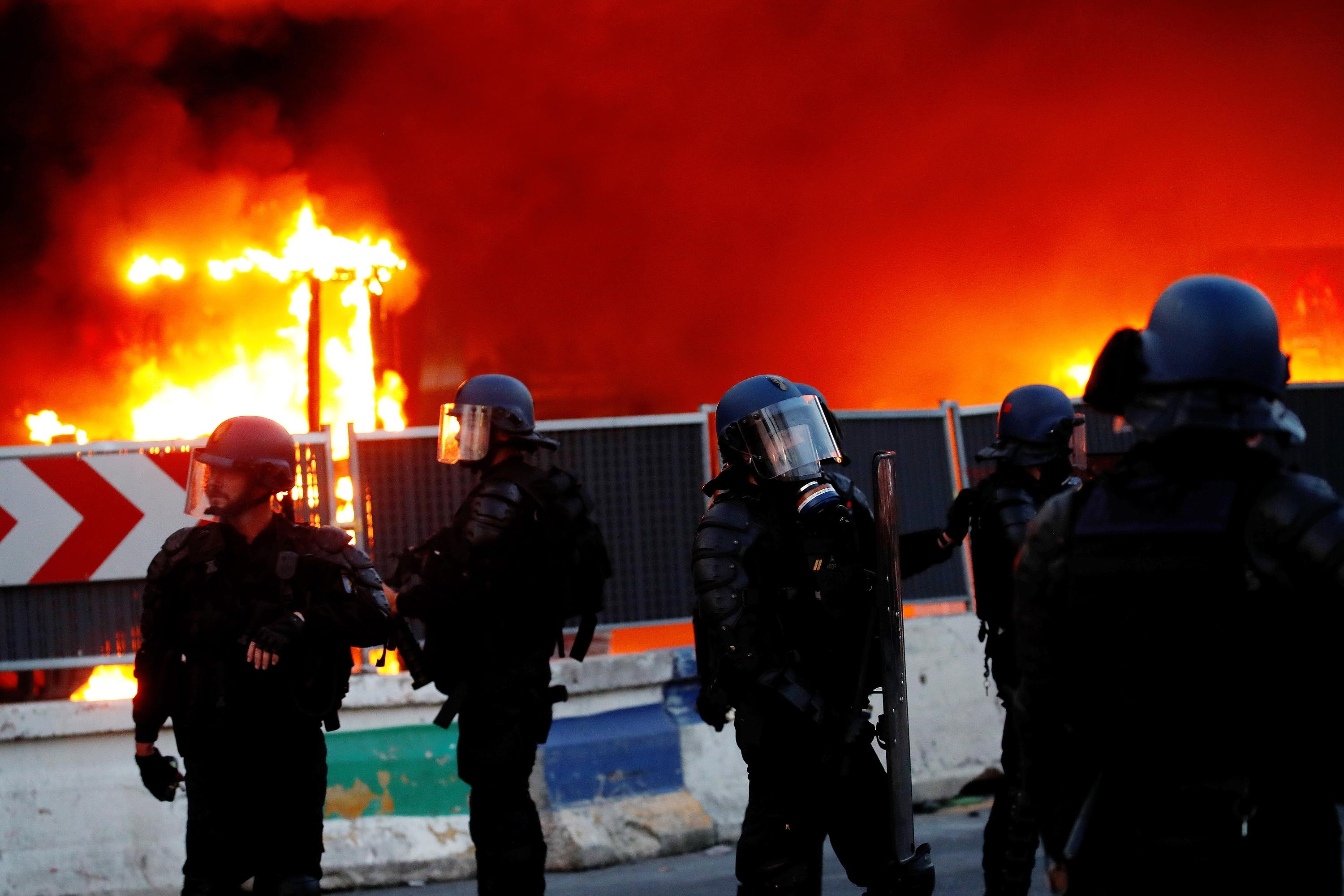Mati Diop, competition beast? After winning the Grand Prix at the Cannes Film Festival in 2019 for her first feature film, Atlantic, the Franco-Senegalese director won the Golden Bear at the Berlinale with Dahomey. A transition from fiction to documentary to tell the story of the restitution by France of 26 royal treasures from Dahomey to Benin in November 20021. 26 out of thousands looted by French colonial troops in 1892. The filmmaker first films the crating of the works at the Quai Branly museum before their repatriation to their land of origin. Among them, Number 26 speaks from the darkness – objects have a soul and a stentorian voice like Darth Vader. But Mati Diop above all gives a voice to the students of the University of Abomey Calvi. Their debate is the heart of the film. They question the fact of expressing themselves in French, the language of the colonizer, the political aims of this restitution (propaganda of Presidents Macron and Patrice Talon?), the status of these objects in a country where museography is non-existent. … Each intervention goes in a different direction. If no film can exhaust such a subject, Dahomey, quite lazy in its form, only touches on fascinating questions in 67 minutes. However, this was enough to convince Mexican-Kenyan actress Lupita Nyong'o (12 years a slace, Star Wars, Black Panther), the first black artist president of the jury at the Berlinale.
Dahomey follows Sur l'Adamant, the first part on psychiatry by Nicolas Philibert. We can read there the affirmation of the recognition of a genre, the documentary. We can also see, implicitly, the weakness of the fiction, or fictions, proposed by the Berlin competition. However, it was necessary to complete the list.
The Grand Prize awarded to A Traveler's Needs by Hong Sangsoo looks like a hoax. We see Isabelle Huppert giving French lessons in English to South Koreans. After the Asssimil method, the Isa method, based on feeling. Unfortunately, we did not see Pepe, which earned Nelson Carlos De Los Santos Arias the Best Director Award. The story of a hippopotamus. Yes Yes.
The Jury Prize rewards The Empire by Bruno Dumont, a ch'ti version of Star Wars, which transforms a village in the North of France into a battlefield between the forces of Good and Evil. Currently in theaters.
The German Matthias Glasner received the Best Screenplay Prize for Sterben, the story of a couple at the end of their lives (Parkinson's, cancer) and their two children, adults with ordinary emotional setbacks. A little air of Michael Haneke, sentimentalism and more.
The non-gendered interpretation prize goes to the American Sebastian Stan for A Different man, by Aaron Schimberg. A satire on beauty, its dictates and its privileges, through an aspiring New York actor suffering from an illness that distorts his face. Stan could have shared the prize with his partner Adam Pearson, who actually suffers from neurofibromatosis, in what looks like a remake of Elephant Man by Woody Allen.
Finally, Emily Watson, for her role as mother superior in the insignificant Small Things Like These, with Cilian Murphy, won the award for best supporting role. It's well paid.

 What is chloropicrin, the chemical agent that Washington accuses Moscow of using in Ukraine?
What is chloropicrin, the chemical agent that Washington accuses Moscow of using in Ukraine? Poland, big winner of European enlargement
Poland, big winner of European enlargement In Israel, step-by-step negotiations for a ceasefire in the Gaza Strip
In Israel, step-by-step negotiations for a ceasefire in the Gaza Strip BBVA ADRs fall almost 2% on Wall Street
BBVA ADRs fall almost 2% on Wall Street Children born thanks to PMA do not have more cancers than others
Children born thanks to PMA do not have more cancers than others Breast cancer: less than one in two French women follow screening recommendations
Breast cancer: less than one in two French women follow screening recommendations “Dazzling” symptoms, 5,000 deaths per year, non-existent vaccine... What is Lassa fever, a case of which has been identified in Île-de-France?
“Dazzling” symptoms, 5,000 deaths per year, non-existent vaccine... What is Lassa fever, a case of which has been identified in Île-de-France? Sánchez cancels his agenda and considers resigning: "I need to stop and reflect"
Sánchez cancels his agenda and considers resigning: "I need to stop and reflect" “Amazon product tester”: the gendarmerie warns of this new kind of scam
“Amazon product tester”: the gendarmerie warns of this new kind of scam “Unjustified allegations”, “promotion of illicit products”… Half of the influencers controlled in 2023 caught by fraud repression
“Unjustified allegations”, “promotion of illicit products”… Half of the influencers controlled in 2023 caught by fraud repression Extension of the RER E: Gabriel Attal welcomes a “popular” ecology project
Extension of the RER E: Gabriel Attal welcomes a “popular” ecology project WeWork will close 8 of its 20 shared offices in France
WeWork will close 8 of its 20 shared offices in France “We were robbed of this dignity”: Paul Auster’s wife denounces the betrayal of a family friend
“We were robbed of this dignity”: Paul Auster’s wife denounces the betrayal of a family friend A masterclass for parents to fill in their gaps before Taylor Swift concerts
A masterclass for parents to fill in their gaps before Taylor Swift concerts Jean Reno publishes his first novel Emma on May 16
Jean Reno publishes his first novel Emma on May 16 Cannes Film Festival: Meryl Streep awarded an honorary Palme d’Or
Cannes Film Festival: Meryl Streep awarded an honorary Palme d’Or Omoda 7, another Chinese car that could be manufactured in Spain
Omoda 7, another Chinese car that could be manufactured in Spain BYD chooses CA Auto Bank as financial partner in Spain
BYD chooses CA Auto Bank as financial partner in Spain Tesla and Baidu sign key agreement to boost development of autonomous driving
Tesla and Baidu sign key agreement to boost development of autonomous driving Skoda Kodiaq 2024: a 'beast' plug-in hybrid SUV
Skoda Kodiaq 2024: a 'beast' plug-in hybrid SUV The home mortgage firm rises 3.8% in February and the average interest moderates to 3.33%
The home mortgage firm rises 3.8% in February and the average interest moderates to 3.33% This is how housing prices have changed in Spain in the last decade
This is how housing prices have changed in Spain in the last decade The home mortgage firm drops 10% in January and interest soars to 3.46%
The home mortgage firm drops 10% in January and interest soars to 3.46% The jewel of the Rocío de Nagüeles urbanization: a dream villa in Marbella
The jewel of the Rocío de Nagüeles urbanization: a dream villa in Marbella Europeans: a senior official on the National Rally list
Europeans: a senior official on the National Rally list Blockade of Sciences Po: the right denounces a “drift”, the government charges the rebels
Blockade of Sciences Po: the right denounces a “drift”, the government charges the rebels Even on a mission for NATO, the Charles-de-Gaulle remains under French control, Lecornu responds to Mélenchon
Even on a mission for NATO, the Charles-de-Gaulle remains under French control, Lecornu responds to Mélenchon “Deadly Europe”, “economic decline”, immigration… What to remember from Emmanuel Macron’s speech at the Sorbonne
“Deadly Europe”, “economic decline”, immigration… What to remember from Emmanuel Macron’s speech at the Sorbonne These French cities that will boycott the World Cup in Qatar
These French cities that will boycott the World Cup in Qatar Champions Cup: Toulouse with Flament and Kinghorn against Harlequins, Ramos replacing
Champions Cup: Toulouse with Flament and Kinghorn against Harlequins, Ramos replacing Tennis: still injured in the arm, Alcaraz withdraws from the Masters 1000 in Rome
Tennis: still injured in the arm, Alcaraz withdraws from the Masters 1000 in Rome Sailing: “Like a house that threatens to collapse”, Clarisse Crémer exhausted and in tears aboard her damaged boat
Sailing: “Like a house that threatens to collapse”, Clarisse Crémer exhausted and in tears aboard her damaged boat NBA: Patrick Beverley loses his temper and throws balls at Pacers fans
NBA: Patrick Beverley loses his temper and throws balls at Pacers fans


















